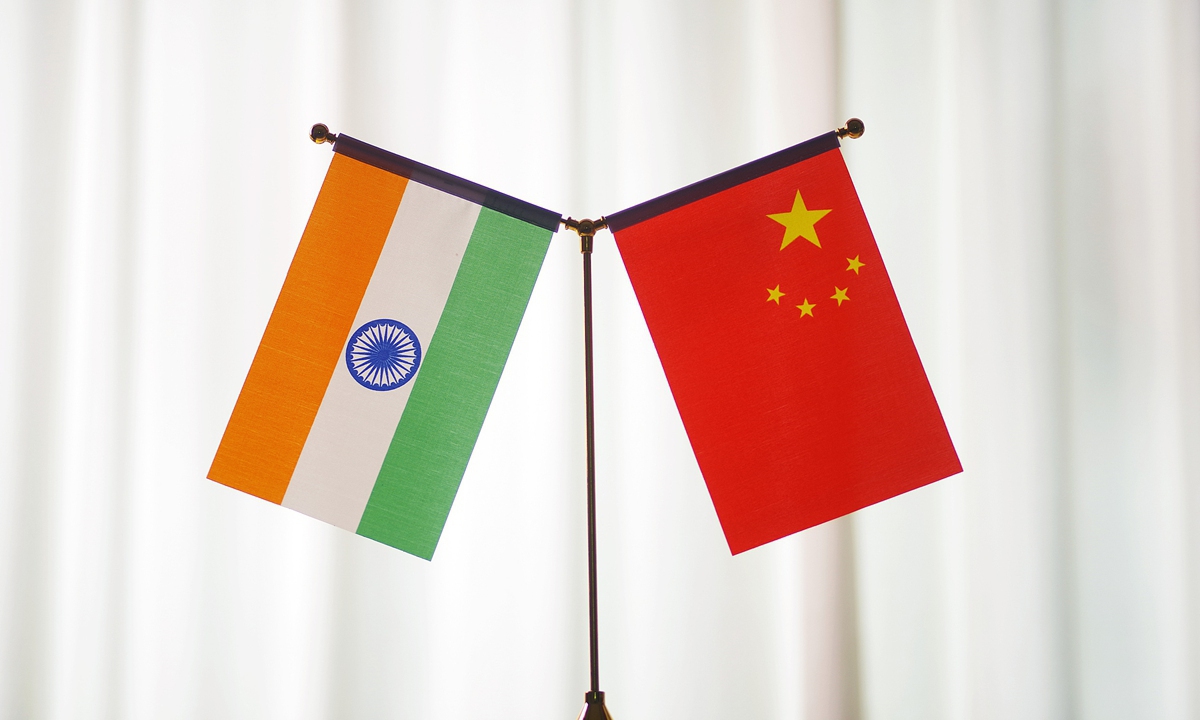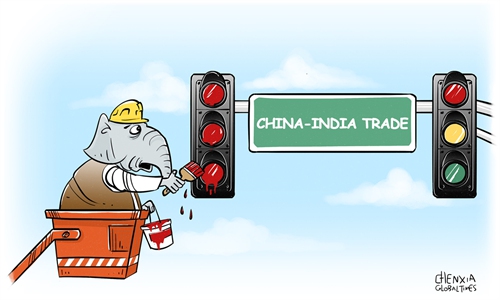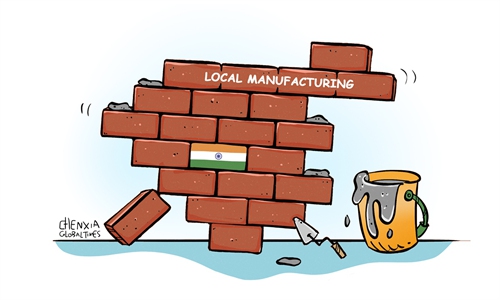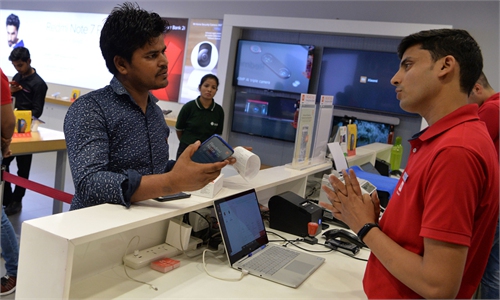India's reported plan to ease visas for Chinese technicians reflects need for stronger industry ties with China

China India Photo:CFP
India's reported plan to ease visa norms for Chinese technicians has sent a positive but rare message amid soured bilateral ties under Prime Minister Narendra Modi's government since the two countries' border clash. The move reflects the fact that for India to boost its industry development, building stronger ties with China is its best way forward, a Chinese expert and industry insider said.
The Indian government is working on a framework to process visa applications for Chinese technicians to make it easier for them to come to India, as these workers are needed in non-Production Link Incentive (PLI) scheme sectors to boost production, The Indian Express reported on Friday, citing Rajesh Kumar Singh, secretary of Indian's Department for Promotion of Industry and Internal Trade. The final decision has not been taken yet as India's Ministry of Home Affairs and Ministry of External Affairs will make the final call, the official said.
Many Chinese technicians currently face difficulties in obtaining visas to India, as the Indian government has made politically motivated attempts to crack down on Chinese businesses while seeking to decouple from China. This has also affected Indian companies, which have been struggling to find qualified workers to do the jobs.
"India believes that decoupling from China can bring about the transfer of industries to India and promote the development of local industries. However, facts prove that India's dependence on China is much greater than China's reliance on India," a senior business insider based in India told the Global Times on Sunday on condition of anonymity, noting that facts show that "India will not be able to bear a decoupling from China."
Having imported and installed Chinese machinery, the domestic industry is unable to operationalize plants due to visa hurdles, The Indian Express reported. Citing official data, the report said that out of the nearly $100 billion worth of imports from China, nearly 60 percent comprised engineering and electronic items, which also play a key role in fulfilling India's export orders.
India's plan to relax visa norms for Chinese technical personnel may be extended to industries beyond the PLI scheme, serving as an indication that the development of India's manufacturing industry cannot proceed without China's participation and support, the insider said.
In recent years, India has repeatedly tried to suppress Chinese companies in the country with measures including strict visa restrictions on Chinese citizens, which has seriously affected commercial activities between the two countries.
A report published by the Economic Times in June said that Indian electronics manufacturers have suffered $15 billion in production losses and 100,000 job cuts due to escalating tensions with China. Visa delays for Chinese executives are hindering the industry's expansion plans, leading to a $10 billion export opportunity loss and $2 billion in value-added loss.
Chinese experts said that despite India's politically motivated attempts to squeeze Chinese businesses, evidence shows that the need for closer bilateral economic and trade ties remains strong due to high complementarity across various industries.
The latest reported move on easing visa norms sends a positive message that despite fluctuations, the economic and trade exchanges between the two major trading partners remain resilient and strong, Qian Feng, director of the research department at the National Strategy Institute at Tsinghua University, told the Global Times on Sunday.
In recent years, political factors have disrupted the cooperation between China and India in fields such as economic, trade and cultural exchanges. "India critically needs skilled Chinese engineers to help overcome technological hurdles in its development. This underscores that politically motivated decoupling is contrary to the objective development trend of the country," Qian said.
Over the years, as India aims to establish itself as a manufacturing powerhouse, its collaboration with China has been indispensable in both intermediate goods and talent to help fill the gap, with China standing out as the optimal partner in these domains, the Chinese expert added.
However, more observation is needed since the visa easing plan has not yet been finalized. Moreover, other actions from the Indian side, including "refraining from clamping down on Chinese businesses and ensuring a fair and friendly market environment for them," must be in place, Qian said.
Until then, there is still a long way to go to restore the country's image as an investor-friendly destination and regain the trust of foreign investors, particularly from China, according to experts.



